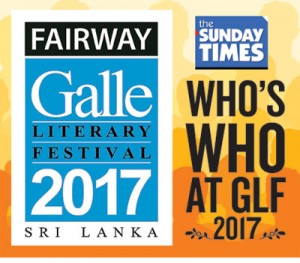The writer no one took notice of until he won the Man Asia Literary prize
View(s): In English, the title of Miguel Syjuco’s critically acclaimed book, Ilustrado, means “enlightened one.” During the 19th century, it referred to the Philippines’ Europe-educated literati, whose revolutionary ideas helped establish the foundations for Asia’s first democracy. Two hundred years later, expatriate Filipino author Syjuco has put a modern spin on this dated term.
In English, the title of Miguel Syjuco’s critically acclaimed book, Ilustrado, means “enlightened one.” During the 19th century, it referred to the Philippines’ Europe-educated literati, whose revolutionary ideas helped establish the foundations for Asia’s first democracy. Two hundred years later, expatriate Filipino author Syjuco has put a modern spin on this dated term.
Born and raised in Manila, he chose to name his young Filipino protagonist after himself. The fictional Miguel Syjuco returns to the Philippines, determined to uncover the truth behind the death of his dissident mentor Crispin Salvador. Syjuco has many things in common with his character – he is not unfamiliar with the elite class he parodies, for a start.
He told a journalist from TIME magazine: “The Miguel Syjuco character is not me. I wanted him to represent my own fears and frustrations and guilt, my own worst tendencies and my optimistic expectations. He’s a cautionary tale for me. But he’s also an examination of the darkest things that haunt me as a person. I named him after me because I think it keeps the reader a little bit more engaged and wondering what’s real and what’s not. And that’s a good thing.”
‘Ilustrado’ was critically acclaimed. A NY Times Notable Book of 2010, it was also the winner of the Man Asian Literary Prize, the Hugh MacLennan Prize, the Palanca Award, and the Filipino Readers’ Choice Award. Academic Caroline Hau wrote that all this has made Ilustrado “arguably the first contemporary novel by a Filipino to have a global presence and impact.”
The author told an interviewer from Picador: “Everyday life in Manila is filled with so much beauty, tragedy, sadness, courage, absurdity, and opposing forces such as rich and poor, East and West, ancient and modern, liberal and conservative. I set out to write a novel – or I should say “try” to write a novel, because this is my first attempt in my life at the novel form – that captured all that, along with all the paradoxical nuances that exist between the absolutes.”
Success didn’t come easy to Syjuco though. For many years, writing didn’t pay him enough. He took on odd jobs as a copy editor and bartender, but also more eccentric ones like being a medical guinea pig and an eBay power seller of ladies’ handbags. He was even a bookie at the horse races. “I did anything I could to make ends meet,” he has said. “Those to me were hobbies that paid money, because my main job, even if it didn’t pay any money, was creative writing. So I’d wake up, and I’d go straight to my desk, and I’d work until I couldn’t work anymore.”

It was winning the Man Asia Literary prize for his unpublished manuscript that really opened doors: “For years, agents didn’t want to talk to me, publishers didn’t want to talk to me, were not interested in something that’s about the Philippines, this unconventional book that has jokes in it, snippets of conversations and excerpts from books, poetry, blogs, and text messages,” he told a journalist from the Tayo Literary Mag. “But the prize got me up there.”
Today Ilustrado has been translated into 16 languages. It is currently taught in universities and high schools in the Philippines and around the world.
As a journalist and freelance writer, Syjuco was copyeditor at The Independent Weekly (Australia) and The Montreal Gazette, and has written for the New York Times, Time Magazine, Newsweek, the International Herald Tribune, the BBC and many other publications. He is currently visiting Professor of Practice, Literature, and Creative Writing at New York University in Abu Dhabi, and was recently Radcliffe Fellow at Harvard University and International Writer-in-Residence at Singapore’s Nanyang University.


